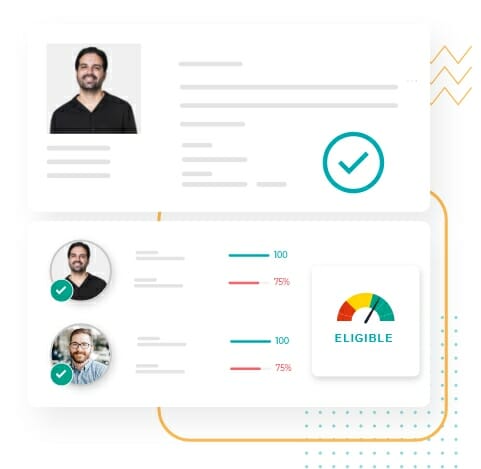
A Financial Assistance Policy (FAP) is a discounted or free medical service for patients and a part of a financial clearance solution helping people below eligibility standards to bear their medical expenses. A FAP was created under the Affordable Care Act to increase transparency and address medical debts. Charity care is provided to patients with inadequate medical insurance coverage or limited resources. A FAP must be applied to every medical care or emergency sector established in the US hospital facility with a substantially-related entity. Anyone can apply for a FAP by themselves by filling out the application form and fulfilling the information required with appropriate documentation. FAP cannot be denied just because certain documentation is missing while applying.
The Financial Assistance Policy implemented in a hospital facility in written form must contain certain elements. They are:
Actions to Take in the Event of Non-payments
The Financial Assistance Policy must describe the following when billed separately or under the assistance of a hospital facility.
Emergency Medical Care Policy
Emergency medical conditions are well defined as per Section 1867 of the Social Security Act under the Emergency Medical Treatment & Labor Act (EMTALA). Every hospital facility must create a written policy prior to offering the financial clearance solution for every individual. The hospital must provide medical care regardless of whether the person is FAP eligible. The emergency medical care policy in the US hospital must refrain from making patients pay before receiving treatment or allowing activities of any form of debt collection in case of emergency.
Any hospital which has established a FAP will have an emergency medical care policy or separate billing and collection policy only if it has implemented and adopted the policy of rendering a financial clearance solution. The US healthcare organization can create a Financial Assistance Policy, emergency medical care policy and billing and collections policy similar to other hospital facilities. They can also develop a joint policy between multiple hospital facilities but make the facility details clear, stating under which the firms are categorized. Based on the circumstances and facts, it can be found out whether a hospital facility has implemented the policy and the simple hack is to verify whether healthcare facility consistently carries out the policy.
Various states in the USA have passed a financial assistance law to offer free or discounted care with the right financial clearance solution. A few of the people with low-income also receive state-funded financial assistance. There is a mandatory rule according to the strongest consumer protection acts in the areas mentioned above that hospitals have to offer a comprehensive FAP, which includes provisions for discount care with either free care or 100% discount.
1. State Financial Assistance Policies
Only a handful of states in the USA offer financial assistance for low-income patients in for-profit and non-profit hospitals. They provide either free care or a 100% discount for patients who fall on or below the specific income criteria. Hospitals in Rhode Island and New Jersey have the policy to offer discounted care to residents with incomes between 200% to 300% FPL and provide a 100% discount for people at 200% or below. According to the financial clearance solution in New Jersey, uninsured patients whose family incomes are below 500% FPL will not be charged beyond 15% of the Medicare payment rate.
Illinois in the USA offers free care for patients with family incomes at or below 200% FPL. However, the patient has to fulfil and cover the first 300$ of the care. The healthcare at rural areas or places of critical access has to be free for patients at or below 125% FPL. In the case of uninsured patients with assets or income at or below 600% FPL, the hospital facilities have to provide discounted care after analyzing the financial clearance solution. Maryland has mandated that hospital facilities offer free care for people at or below 200% FPL or discounted care for patients with income between 200% to 500% FPL. Whereas California provides free or discounted care for uninsured patients and residents with high medical expenses but with income at or below 350% FPL.
Maine provides free care for residents with an income less than 150% FPL. In contrast, New York in the USA charges no more than a nominal fee structure to patients with income at or below 100% FPL. They provide discounted care with the right financial clearance solution to patients with income between 100% to 300% FPL on a sliding scale basis. Most importantly, hospitals in New York cannot charge uninsured patients who have an income below 300% FPL more than what the hospital facilities get from Medicaid, Medicare or any highest volume payer. In the case of Washington, the hospitals mandate to provide discounts for patients between 100% to 200% and free care for uninsured patients at or below 100% FPL.
2. An Insight Into the States Mandating Financial Assistance for Non-profit & Publicly Funded Hospitals
Certain states in the USA require non-profit or state-owned hospitals to provide financial assistance. Oregon in the USA requires a non-profit hospital or clinic to provide an appropriate financial clearance solution for patients with income up to 200% FPL. They offer assistance on a sliding scale basis for people with income up to 400% FPL. Whereas in Texas, fewer than half of their hospitals are non-profit entities, and they provide financial assistance to patients with income between 21% to 200% FPL. In Louisiana, the state-owned hospitals offer financial assistance for patients with family incomes at or below 200% FPL.
The Takeaway
It is the responsibility of the hospitals to provide information about the availability of a financial clearance solution and charity care to patients with low-income. Hospitals widely publicize the FAP policies and summary on their website to make patients aware of them. CoverMe is a reputed front end RCM solution provider in the USA, and we take immense effort to create insight into FAP in patients. To know more, get in touch with us.